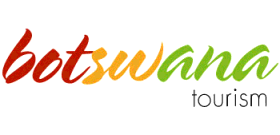 Botswana Charts New Course: Tourism at the Heart of Economic Diversification and Growth
Botswana Charts New Course: Tourism at the Heart of Economic Diversification and Growth
At the recent NextGen Tourism Business Expo in Gaborone, the Botswana Tourism Organisation (BTO) sent a clear message to the continent’s travel industry: tourism is not just a pillar of recovery, but a strategic lever for Botswana’s economic diversification and long-term sustainability. Acting CEO Justice Ofentse, addressing a gathering of industry leaders, policymakers, and innovators, highlighted the country’s robust rebound from the pandemic and outlined a pragmatic policy agenda designed to turn momentum into lasting gains .
Botswana’s tourism sector has staged a remarkable comeback. In 2023, the country welcomed 1,183,432 international arrivals, a figure that both government and industry sources describe as a strong post-COVID rebound . Early indicators for 2025 suggest that Botswana is on track to surpass pre-pandemic arrival levels, a testament to the resilience of its tourism offering and the effectiveness of its recovery strategies. This resurgence is not limited to traditional long-haul markets; while arrivals from the United States, Germany, France, and Canada have exceeded 2019 figures, Botswana is also actively courting new demand from India, China, Israel, and the Gulf states—markets that are increasingly drawn to Africa’s wildlife, luxury, and experiential travel products.
Regional travel has played a pivotal role in this recovery. Arrivals from African markets reportedly tripled between 2021 and 2023, underscoring the growing importance of intra-continental mobility and the potential for Botswana to serve as a hub for multi-country itineraries in East and Southern Africa. This trend is particularly relevant for African operators seeking to tap into the expanding appetite for cross-border travel and collaborative tourism circuits.
The NextGen Expo was more than a showcase of headline numbers; it was a forum for translating performance into policy. Ofentse outlined four practical levers to drive the next phase of growth: market and product diversification, visa reform, improved air connectivity, and bolder destination marketing. Each of these priorities addresses structural constraints that have historically limited Botswana’s market access and visitor length of stay.
Visa facilitation is at the top of the agenda, with officials recognizing that easing entry requirements is a direct enabler for attracting long-haul and emerging markets. Air connectivity is seen as a complementary strategy: developing new routes and forging airline partnerships are essential to converting interest into bookings and making multi-destination itineraries commercially viable. Market and product diversification means moving beyond the classic wildlife safari narrative to present Botswana as a destination rich in cultural, community-led, conservation-anchored, and event-driven experiences. Finally, destination marketing must become sharper and more targeted, repositioning Botswana in the minds of both travelers and trade partners .
Ofentse distilled Botswana’s comparative advantage into a people-centered narrative, emphasizing “the harmony of our land, people, culture, and values.” He urged the industry to position Botswana “not just as a place to visit, but a place to connect, transform, and return to”—a reframing that places relationship-building at the heart of the tourism experience, rather than viewing it as a one-off transaction.
The Expo also highlighted a tactical shift toward leveraging business events and meetings as instruments for economic spread. Government and industry commentary suggested strong political support for using events to stimulate investment, increase shoulder-season demand, and channel visitor spending into smaller centers and communities. For a country seeking to broaden the geographic and economic footprint of tourism, business events present a practical mechanism for redistribution and inclusive growth.
The practical implications for operators and investors are immediate. Improved air links and streamlined visa processes would reduce friction for source markets identified by Ofentse, while strengthened marketing and product diversification create opportunities for local SMEs and experience-based operators to scale. For international tour operators, the combination of recovered long-haul source markets and burgeoning regional demand points to an expanding commercial window for multi-country itineraries that include Botswana as a core experience.
There are, however, important verification points to monitor. The 1,183,432 figure is the official tally for 2023, but confirming year-to-date performance for 2024 and the full trajectory through 2025 will require the latest statistics releases. Likewise, a verbatim transcript of Ofentse’s address would be valuable for policy and investor briefings, ensuring that the sector’s messaging remains aligned and actionable.
What should the industry watch for next? Concrete outcomes from the policy priorities set at NextGen. Specifically, look for announcements on visa policy, new airline partnerships or route commitments, targeted marketing investments into India, China, and the Gulf, and a calendar of business events designed to attract international buyers. These measurable steps will be the true test of whether Botswana’s rhetoric is translating into structural change and sustainable growth.
Botswana’s message at the NextGen Expo was clear and disciplined: the country is not merely recovering from the pandemic—it is repositioning tourism as a lever for sustainable, inclusive growth. For governments, investors, and operators across Africa, the challenge now is to convert intent into infrastructure, connectivity, and market access that deliver repeatable, long-term benefits for the entire region.
